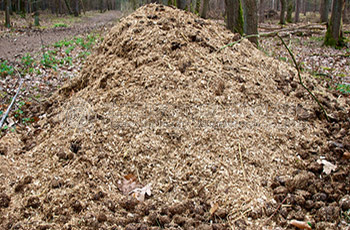Fermentation maturity of organic fertilizer is an important index to distinguish fertilizer quality. It can be judged by the color, odor, temperature, straw hardness, leachate, volume, absorbance and humification coefficient of compost.
From the color point of view: During composting, the compost gradually turns black, and the decomposed compost products are black-brown and black. The color can also be used as a judgment standard.
From the odor point of view: Composting raw materials have ammonia odor, and in the composting process will produce H2S, NO and other unpleasant gases, but after a good composting process, these odors gradually weakened and disappeared after composting.
From the temperature point of view: The temperature of compost body increases gradually and then decreases after composting begins, while the temperature of compost body after maturation is consistent with or slightly higher than that of environment, and will not change significantly.
From the hardness point of view: Before the fermentation is completed, the straw is easy to break, and after the completion, the straw compost is soft and elastic.
From the compost leachate point of view: We can see that the leachate of decomposed compost is yellowish after mixing with clear water (the ratio of fertilizer to water is 1:5-10) for 3-5 minutes.
From the compost volume point of view: The compost after fermentation is half or more smaller than that before fermentation.
In terms of absorbance: The optical properties of water extracts from compost at 280nm, 465nm and 665nm at different time showed that the absorption of short wave was inhibited due to the presence of a small amount of individual organic components, while the visible light at 665 nm was less affected. Therefore, the absorption of water extracts from compost at 665 nm was detected. The degree change can reflect the compost maturity.
From the humification coefficient point of view: The humification coefficient is about 30%.
The compost that meets the above criteria is a high-quality compost with good fertilizer efficiency. It can be used in various soils and crops, improve the structure of soil and improve the fertility of land. Fertilizer fermentation is an important part of organic fertilizer production, organic fertilizer plant in the production of compost, using organic fertilizer turner machine can effectively improve the contact of material and air, improve the quality of compost.

